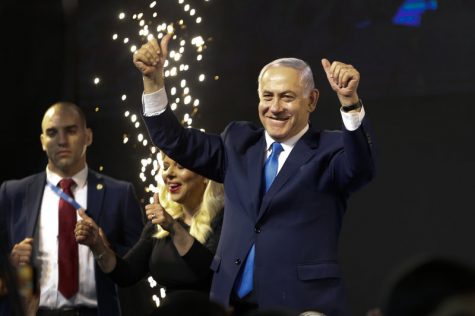Israel’s Election Ends and It’s Results
May 29, 2019
Israel recently held parliamentary elections that are largely a referendum on the leadership of Prime Minister Benjamin Netanyahu. Netanyahu has been Prime Minister for the past decade. He has allied with President of the United States, Donald Trump, but has had a great deal of criticism from the left wing of American politics and some pro-Israel organizations. Under Netanyahu, the economy has grown steeply, with unemployment down and income up. He has also increased trade around the world. There has been war with the Hamas, however, compared to the past, the toll for Israelis has been lower than past wars. Netanyahu has also passed a law declaring Israel as the “nation state of the Jewish people,” which could undermine the standing of the country’s 1.6 million Palestinian Arab citizens. Furthermore, Netanyahu has imminent criminal indictments for bribery, fraud and breach of trust. This election’s bottom line has been, will Netanyahu be able to hold on to the power despite the criminal indictments he has been facing.
Netanyahu’s main challenger is retired General Benny Gantz. He heads a new party assembled of former senior officers ranging from the center to the right, Kahol and Lavan, which means, “blue and white” in Hebrew, the language spoken in Israel. The purpose of the creation of the party is best summarized by the slogan, “There is no right or left — only what is good for Israel.”
In the end, Netanyahu and the Likud Party won by a very low margin. Netanyahu’s coalition comprises his Likud and mostly Jewish religious parties that take a hard line on relations with the Palestinians. In response, President Donald Trump stated, “So, the fact that Bibi won, I think we’ll see some pretty good action in terms of peace,” Mr. Trump said outside the White House. “Everyone said you can’t have peace in the Middle East with Israel and the Palestinians. I think we have a chance, and I think we have now a better chance with Bibi having won.”


